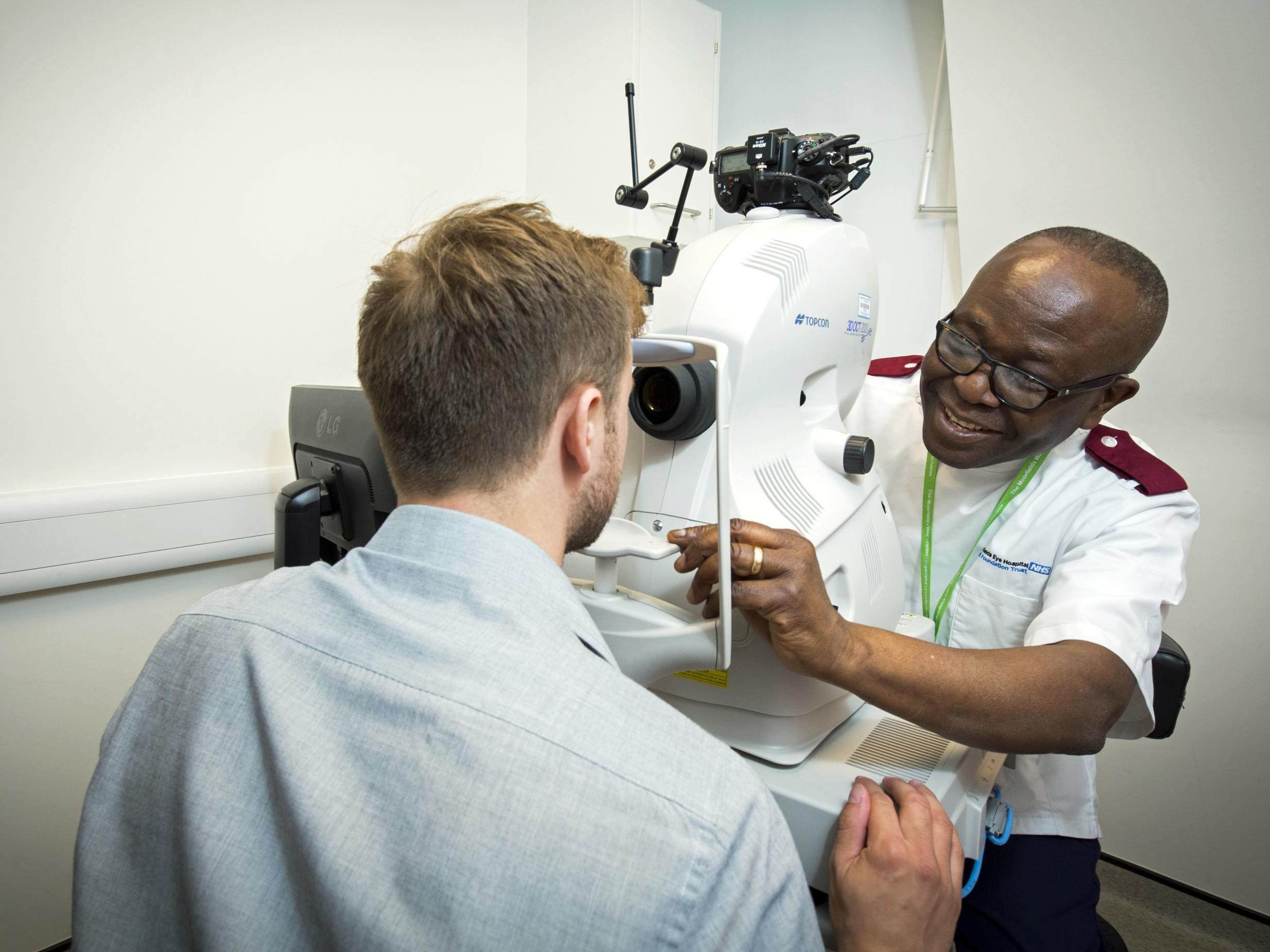Artificial intelligence system 'as good as world-leading experts' at detecting eye disease
Programme identified patients in need of urgent treatment in 94 per cent of cases during tests

Your support helps us to tell the story
From reproductive rights to climate change to Big Tech, The Independent is on the ground when the story is developing. Whether it's investigating the financials of Elon Musk's pro-Trump PAC or producing our latest documentary, 'The A Word', which shines a light on the American women fighting for reproductive rights, we know how important it is to parse out the facts from the messaging.
At such a critical moment in US history, we need reporters on the ground. Your donation allows us to keep sending journalists to speak to both sides of the story.
The Independent is trusted by Americans across the entire political spectrum. And unlike many other quality news outlets, we choose not to lock Americans out of our reporting and analysis with paywalls. We believe quality journalism should be available to everyone, paid for by those who can afford it.
Your support makes all the difference.An artificial intelligence (AI) programme has the potential to prevent irreversible sight loss by spotting the key signs of eye disease as well as world-leading experts can, a study has found.
The system, which draws on data from thousands of NHS patients, could ensure patients with serious eye conditions receive vital early treatment.
Early trials of the programme, developed by scientists at Moorfields Eye Hospital, University College London, and Google's DeepMind AI research centre, have been so promising it could be rolled out at 30 UK hospitals within three years.
“The number of eye scans we're performing is growing at a pace much faster than human experts are able to interpret them,” said Dr Pearse Keane from Moorfields.
“There is a risk that this may cause delays in the diagnosis and treatment of sight-threatening diseases, which can be devastating for patients.
“The AI technology we're developing is designed to prioritise patients who need to be seen and treated urgently by a doctor or eye care professional.
“If we can diagnose and treat eye conditions early, it gives us the best chance of saving people's sight.”
Anonymous data collected from around 15,000 patients across Britain was used to help the AI “brain” learn how to sport 10 key features of eye disease during optical coherence tomography (OCT) retinal scans.
An OCT scan uses light rather than X-rays or ultrasound to generate 3D images of the back of the eye, revealing abnormalities that may be signs of disease.
Findings published in the journal Nature Medicine showed that the system was able to triage patients with more than 50 eye conditions correctly in more than 94 per cent of cases.
The rate at which it could separate out patients needing the most urgent care matched the performance of world-leading eye experts..
The system does not make a definitive diagnosis on its own, but instead recognises clinical signs that would require patients to receive further attention.
Scientists now plan to push forward with clinical trials under a five-year development programme.
More than 285 million people worldwide live with some form of sight loss, including more than two million people in the UK.
In many cases blindness can be prevented by the early detection and treatment of eye diseases such as macular degeneration and glaucoma.
The study was one of two demonstrating the effectiveness of AI screening of patients reported in Nature Medicine.
The other programme, developed in the US, was able to identify signs of brain damage caused by stroke, haemorrhage and hydrocephalus from CT (computed tomography) X-ray scans in just 1.2 seconds.
Additional reporting by PA
Join our commenting forum
Join thought-provoking conversations, follow other Independent readers and see their replies
Comments